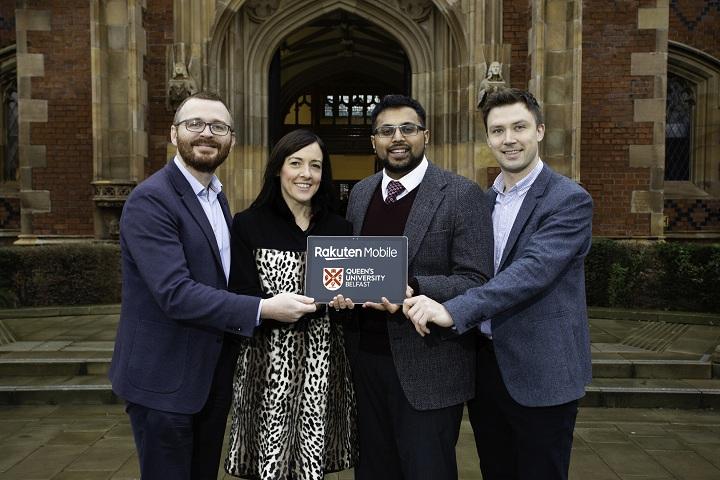
Queen's University and Rakuten Mobile are teaming up to set up an Edge Computing Hub in Belfast, aiming to revolutionise the way we use the internet.
In today's internet, much of what we access online comes from cloud-based server infrastructure designed to balance the massive computing and bandwidth requirements of everything from video streaming and website hosting to providing cloud build and remote computing services for software developers.
One problem with cloud infrastructure is that the server delivering your content or performing your computing isn't necessarily close on the network, in fact it could be in another country entirely. This problem also crops up with firms that run their own centralised servers in their own data centres, as users may be connecting from all across the world and will be experiencing different levels of service quality.
Unpredictable network latency can make standard hosted servers or cloud servers unsuitable for applications that require reliable and rapid response times, such as IoT sensors and cloud gaming. That's a problem that Edge Computing aims to solve by moving the processing of data to servers closer to where it's generated rather than sending it to a central server.
Japanese mobile provider Rakuten Mobile has announced that it's entering the Edge Computing arena thanks to a new collaboration with Queen's University Belfast. The company plans to set up an Edge Computing Hub based in Belfast, where Rakuten currently also has the Rakuten Blockchain Lab, in a bid to become leaders in this emerging technology.
Queen's University lecturer and project leader Dr Blesson Varghese explained the benefits of edge computing: "Currently, processing of all data we generate usually happens on geographically distant clouds. As billions of devices are getting connected to the Internet, we need more sustainable and scalable architectures for computing. They must not solely rely on distant centralised clouds. Edge computing will bring certain services of applications closer to the users on the edge of the network. This will make applications more responsive, reduces bandwidth demand in the network core."
Rakuten Mobile's Head of Research and Innovation Dr Pierre Imai commented on the company's ambitious goals: "Rakuten Mobile aims to be the most technologically advanced telecommunications provider in the world. To achieve this, we have established a new lab to make a truly autonomous network a reality. Through our collaboration with Queen’s University Belfast, we have the opportunity to work with leading researchers in the edge computing field, and the results should allow us to provide a better service and a greater level of convenience to our customers."
Source: Written based on press release